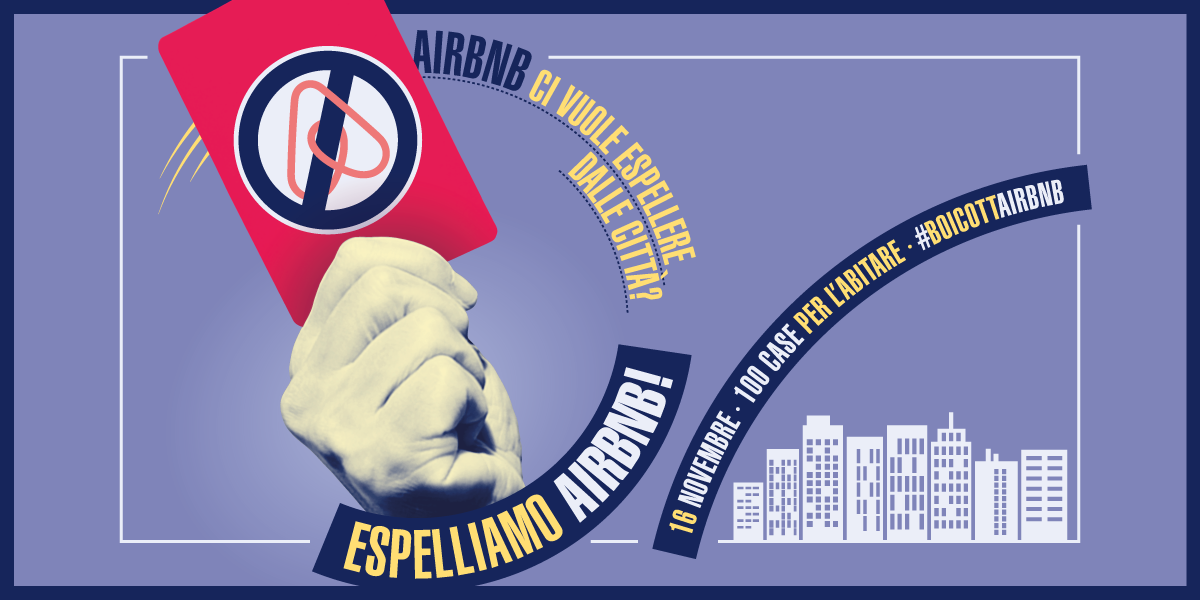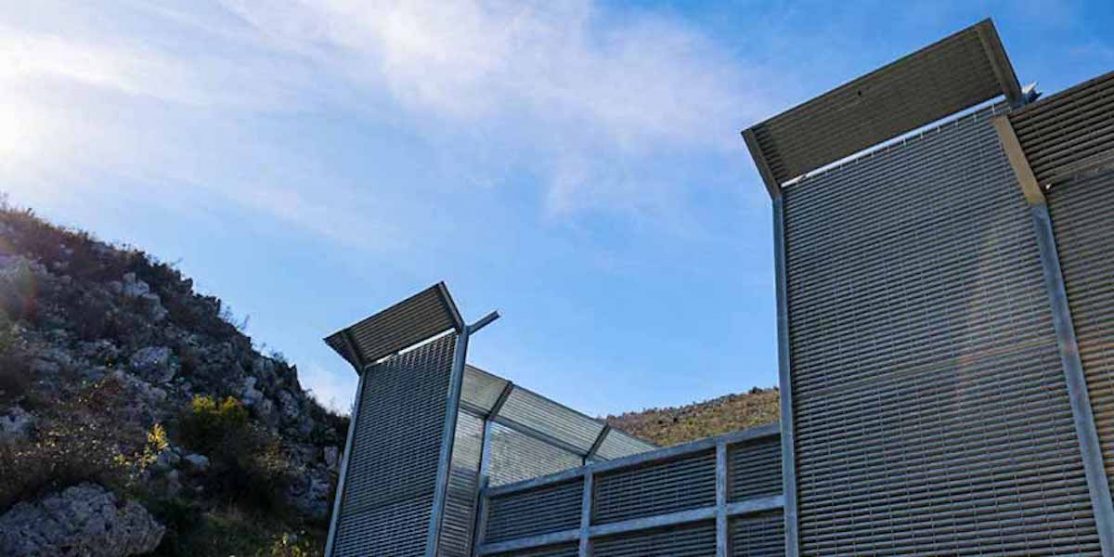100 homes for tenants: Airbnb out of our cities

On November 16 Airbnb hosts will meet for the “primaries of hospitality” in several Italian cities. «We will also be there, for the right to housing» say residents, social centres, activists, including those gathered in the SET network against touristification.
On Saturday November 16 Airbnb hosts will meet for the “primaries of hospitality” in several Italian cities, after the platform invited its users to mobilize for a the creation of a “common manifesto”. The initiative’s website, 100case100idee.it, informs that the events will address issues of national interest as well as of local scope. The platform seems keen to take charge of the “public policies” that concern it, to the extent that it appears to want to dictate them, shielded behind its customers.
We have learnt, from the statements made by the campaign manager Iolanda Romano, and from the numerous articles published in the press on the subject over the last week, that the most pressing problem in Italy, according to Airbnb, is a failure to generate value from real estate assets. Iolanda Romano and her colleagues therefore seem to want to remind us once again that the commodification of housing at the expense of cities and of most of its inhabitants can reach much higher levels.
Airbnb’s move comes as no surprise. The protest against the platform is in fact mounting in many Italian cities because of its negative impact on housing. Last year Italy was Airbnb’s third world market for number of listings. In July 2019 there were 417.000 Airbnb listings in Italy, for over 1.8 million beds, more than twice the number of apartments officially registered, and twice as many as the official accommodation facilities, according to Il Sole24Ore.
Airbnb has spread unchecked throughout Italian cities thanks to the silence and inertia of all institutional levels, in a context of economic recession, falling wages, job insecurity, rising cost of living and housing financialization on a global scale. If Airbnb was ever used by the “middle class” to “make end meet”, as the sharing economy tale would have it, The progressive professionalization of activity on the platform and the role played by international real estate funds in the short-term rental market, outline a completely different scenario. Today
– more than three-quarters of Italian listings are for entire apartments where nobody lives;
– more than half of the listings are managed by multihost (hosts with more than one property);
– almost two-thirds of listings are for accommodation available for more than six months a year.
Airbnb is not about “making ends meet”: it’s a tool for concentrating wealth in the hands of a few commercial hosts with many properties. The impact this is having on our cities is very heavy. With 30,000 listings in Rome, 17,000 in Milan, 11,000 in Florence, 8,000 in Naples, 4,000 in Bologna and over 8,000 in Venice, Airbnb is transforming cities into arenas for real estate and financial speculation and theme parks for tourists.
As a result, there are fewer homes for residents, at higher prices. In the last two years the long-term rental housing stock has decreased by a total of 7% according to Immobiliare.it, while rents have risen: +7% in Bologna, Florence and Rome, + 10% in Milan and Naples. Turnover has reduced by 17%, while landlords who choose the taxation at 21% (also applied to short-term rentals) have quadrupled between 2011 and 2018: “we do not know how many of these landlords are renting their house short-term for up to 30 days, but they are include in the total” writes Sole24Ore.
In order to continue to raise housing prices and expel an increasing numbers and classes of residents, the time has now come to replenish and refresh the old community sharing rhetoric with the appealing of a political mobilization. What better frame than that of the victim of an attack to the “right to hosting”, for building consensus around the most powerful contemporary real-estate platform? For de-legitimizing the analyses, data and empirical demonstrations produced in recent years against Airbnb’s role, the platform has decided once again not to answer the many questions surrounding it’s activity, not to publish the data, not to cooperate with institutions, but to become itself an institution and launch yet another marketing campaign that mystifies its true social, environmental and regulatory impact and the issues that short-term rentals pose.
Airbnb’s initiative is a marketing campaign aimed at promoting the private goals of the multinational company as collective interests, mobilizing the hosts, ignoring and mocking once again those who in recent years have been expelled from their homes, neighborhoods or cities for the rise in rents and, more generally, the cost of living. The right to housing and to the safeguard of social relations of care and exchange established in neighborhoods is the right to live in the city, now increasingly threatened by international companies such as Airbnb that speculate on the city and its housing.
Our houses and cities are not for sale, they are not hotels, they are not tourist-resorts: they are places of life and democracy. For these reasons we will also be there.
Italian nodes of the SET network against touristification
More info soon!




